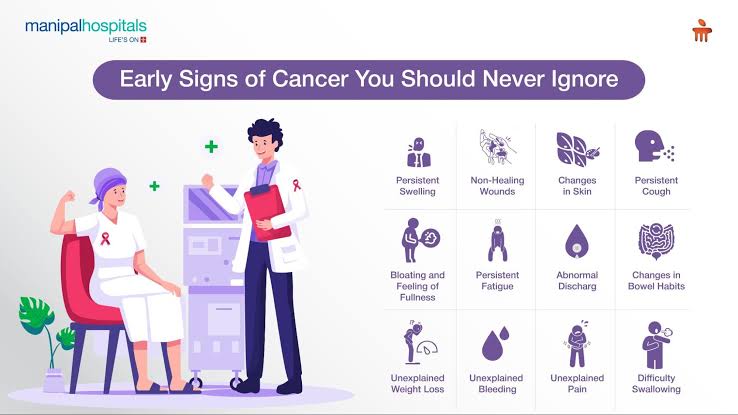Eight possible cancer symptoms you should never ignore.

Cancer can manifest in many ways
Many individuals are delaying investigations into potential cancer symptoms, a new survey suggests, often due to difficulties securing GP appointments or underestimating the seriousness of their health concerns.
Research by Cancer Research UK, polling 6,844 individuals across the UK via YouGov, found that 53 per cent anticipated trouble booking a GP slot, 47 per cent actually encountered issues, 44 per cent assumed symptoms were not serious, and 43 per cent believed they could manage them independently.
In light of these findings, Megan Winter, health information manager at Cancer Research UK, emphasises that any unexplained change should be flagged to your GP.
“Our message is that you need to get everything checked out if it’s not normal for you because there are so many different signs and symptoms of cancer and they can manifest differently for different people,” says Winter. “Listen to your body and if you notice something unusual that doesn’t feel right, talk to your doctor.”
Here are eight signs that should always be evaluated by a professional.
1) Unusual lump or swelling
“If you’ve noticed any unusual lump or swelling anywhere on the body, that is something that you should get checked out by a GP,” advises Winter.
An unusual lump or swelling should be checked by a GP
An unusual lump or swelling should be checked by a GP (Alamy/PA)
“For example, a lump or swelling anywhere around the breast, underneath the elbow and up to the collarbone is something that should get checked out in relation to potential breast cancer.”
2) Unexplained weight loss or tiredness
“Some of the more general symptoms of cancer that can affect the whole body are unexplained weight loss or tiredness,” says Winter. “For example, if you’re losing weight without trying, that’s something to talk to your doctor about.”
3) Unexplained bruising
“Unexplained bruising can be another more general symptom,” says Winter. “For example, if you are bruising more easily, but you haven’t hurt yourself.”
4) Change in bowel habits
“If you’ve noticed a change in your bowel habits, such as you’re constipated more or are pooing more than normal, that’s something to talk to your GP about,” says Winter. “In addition, blood in your poo or wee, or unexplained bleeding from your vagina in between periods and after sex is also something to flag.”
5) Breathlessness
“If you are feeling breathless doing your usual day-to-day activities, like doing housework and feeling breathless for no apparent reason, then that’s something to flag up with your GP,” says Winter.
6) Persistent cough
It’s important to speak to your doctor about a persistent cough that hasn’t gone away in three weeks
It’s important to speak to your doctor about a persistent cough that hasn’t gone away in three weeks (Alamy/PA)
“If you’ve got a persistent cough that hasn’t gone away in three weeks, or if the cough has changed, or if it’s getting worse, it’s important to speak to your doctor about that,” says Winter.
7) Unexplained pain
As we get older, it’s more common to experience aches and pains, but any unexplained or persistent pain anywhere in the body could be a sign of something more serious, highlights the health information manager.
8) Skin changes
“If you’ve noticed any changes to an area of skin – for example, you have an area of skin that’s perhaps isn’t not healing – get that checked out by a doctor,” advises Winter. “A detailed list of specific symptoms of melanoma skin cancer can be found on Cancer Research UK’s website.”



0 Comments